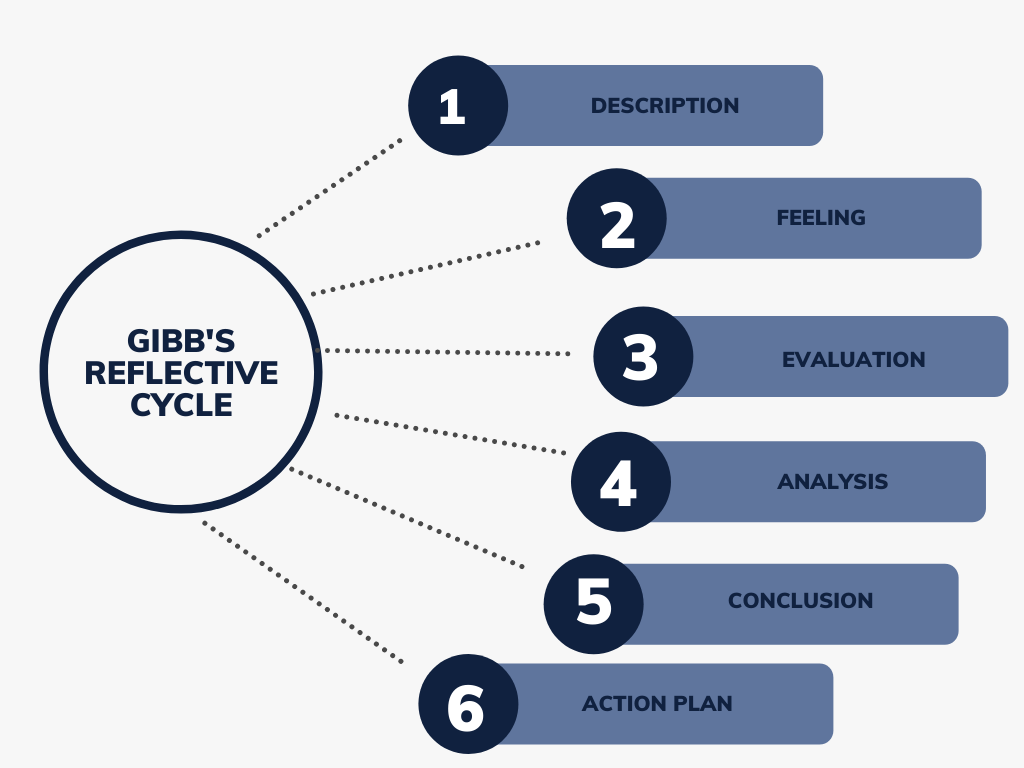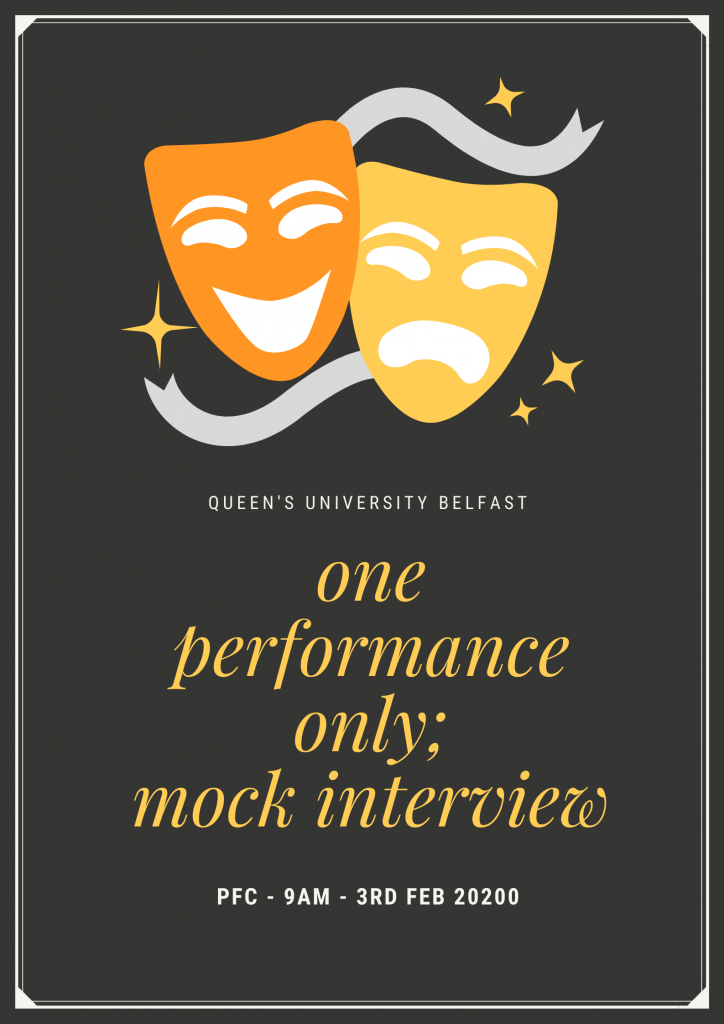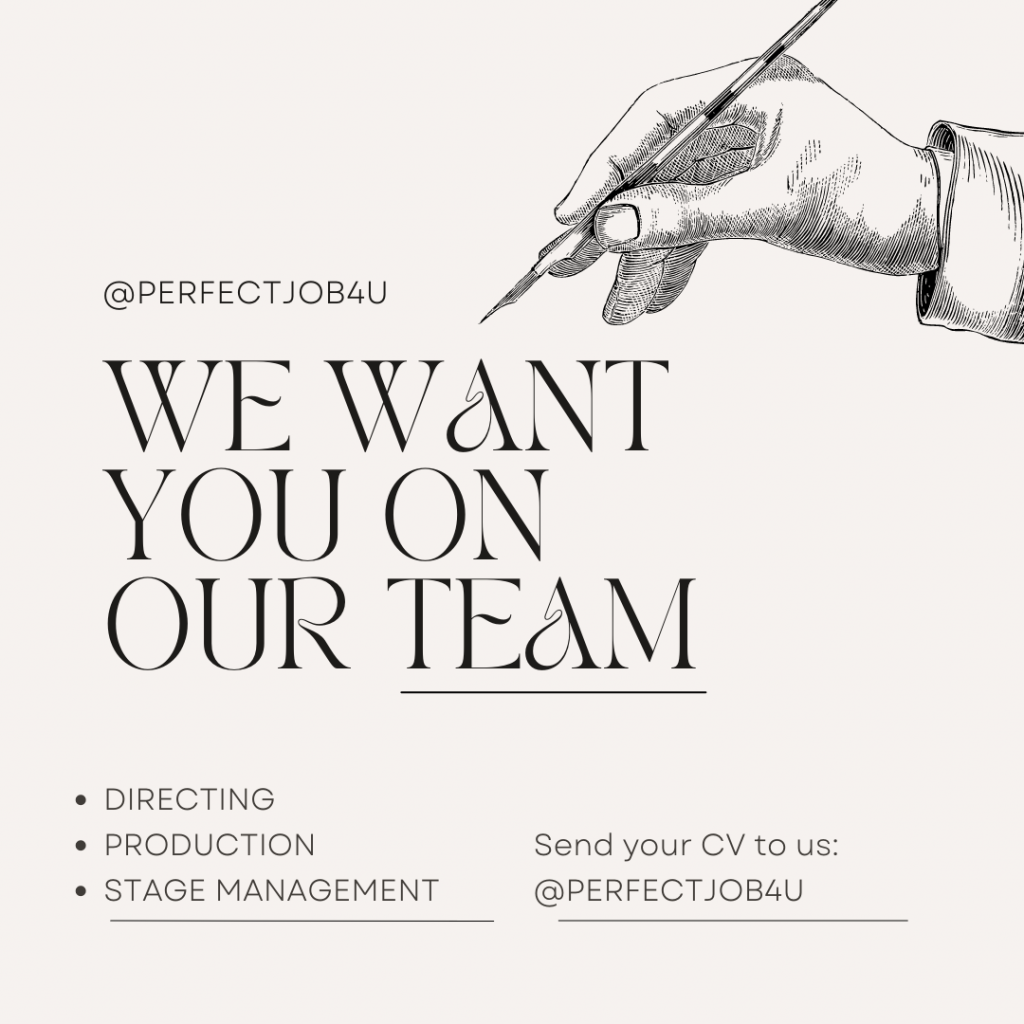
How does a Drama Student approach a stimulated interview?

With almost any job opportunity, there is one trial you will be met with. This trial comes in the form of a conversation between you and your potential employer – it is essentially an opportunity for an employer to get an insight into an applicant’s qualifications, personality, and general suitability for the role. The conversation is an opening for the employer to trial you, but also for you to sell yourself. As a drama student, this process of selling yourself and your ability typically comes in the form of an audition; you perform for 2-4 minutes to your best ability and the auditor makes their judgment on your placement. We don’t have to sell ourselves, better yet, we get to sell our abilities as we enact another person’s life. This was arguably the first challenge I was met with from the offset of this interview process. Responding to this challenge had me recalling to previous modules I have gotten to partake in throughout my degree; specifically; ‘The Art of the Actor’. We were taught about how acting is not quite as linear as presumed, that every day, every single person acts, they are playing a version of themselves whether that be in work, in school, on the phone, or when they are alone. We were reminded that yes there were “external skills”[1] that could be learned but acting was also about “the inner life”[2]. Once I got to grasp with the fact that I could still perform well in an interview opposed to the audition process that I’m so familiar with the rest of the process came with more ease. Throughout this blog I will be reflecting on this experience through Gibb’s Reflective Cycle so that I can remember the challenges I encountered, and the skills I enhanced because if we don’t reflect upon experiences like this, “it may quickly be forgotten, or its learning potential will be lost”.[3]
CHOOSING THE SCRIPT

One of the first steps of my preparation for the mock interview was selecting a job description to give to my peers. As mentioned in my previous blog post, I enhanced my knowledge and interest in the Television/Film sector and do not want to strike that out as a possible career path for myself post-graduation. So, this part of the process was essentially deciding between a stage or a screen job. I had to take in my experiences and knowledge – given that my degree is Drama, and my placement was primarily theatre work, my expertise certainly lies with the stage, however I knew when selecting my job description, I still yearned for some sort of filming/production aspect to it. After a few days of searching through Indeed, Stage Jobs, and LinkedIn, I found the dream position for myself. It was a Production Assistant for the National Theatre in London, an assistant to the Digital Media Department. I thought this was perfect as my knowledge and love for theatre was there for it, but it also incorporates filming in the form of Theatre Live Broadcasts and NT at Home, which was their substitute for live theatre during the pandemic. I knew my skillset wasn’t there yet to apply for a Producer role as my experience isn’t there, but I believe that this job would be the perfect steppingstone. Given that the goal of an interview is to “identify the candidate who best matches the organisation’s needs, aims and culture”[4] I knew that this would be a realistic position for me, and so I would be able to get the most out of this experience and it would help me in a few months when I find myself legitimately in this interview chair.
DON’T FORGET TO REHEARSE

Before the interview day, it is crucial that preparation is done, just like before you go on stage you must rehearse, this part of the process was enjoyable as it just felt like getting into character, becoming more knowledgeable on the company, their beliefs, and what they desire in an employee. I knew if I did this step thoroughly, I would be able to “craft my answers accordingly”[5] because I would know what they are looking for. This step requires independent research and initiative which I believe are two skills I have absorbed and enhanced through the years, and they came in appropriately for this step. I successfully obtained valuable information when researching the job and the company. I discovered that experience in a related field is preferred, this reassured me as I knew my experience was there, I also discovered that organisation and communication skills are crucial as it is a busy and changeable working environment. This ‘rehearsal’ stage was so important as it really calmed me and reassured me that my skillset and experience was there, so I just had to remain calm, listen, and answer the questions truthfully whilst acknowledging that I am an excellent candidate for this position.
TAKING THE STAGE

After every rehearsal period, there comes the time were the curtain opens and you take to the stage to display the hard work and time you have devoted to this performance, the interview was no different. One could compare an interview to a duologue or a dance only “The steps of this dance are the give-and-take, question-and-response exchanged that make meaningful conversations. Learn the steps and you, too, can dance the dance.”[6] When treating it like a scene or a dance, I recognised the importance of listening, taking a minute to think, and responding with the best possible answer. An example of this would be when I was asked “Can you give me an example of a time you displayed good time-management skills?” I took a second to consider my answer and how it would paint me as a desirable candidate for the job. I answered whilst referencing a time when I was in work placement in The MAC Theatre, but also juggling University deadlines, and my part-time job as a supervisor in a coffee shop. I believe this displayed various skills that I have as I was able to discuss working under pressure, theatre experience, communication skills, and time-management.
This process taught a significant amount about me, but primarily the importance of listening and reacting appropriately in this one-to-one situation. I now recognise “the tragedies and the triumphs”[7]of the job interview and how no matter the result, it’s still a learning curve.
[1] Mike Alfreds, Different Every Night, 1st edn (London: Nick Hern Books, 2007).
[2] Ibid.
[3] Graham Gibbs, Learning by Doing: A Guide to Teaching and Learning Methods (Oxford: Oxford Further Education Unit, 1988).
[4]Charles Davis and Anthony Herrera, Preparing for the job Interview: The Interviewer’s Responsibility, Vol.94, No.9, (2013), pp 47-51.
[5] Ron Fry, 101 Great Answers to The Toughest Interview Questions (New Jersey: Career Press, 1991), p.3
[6] Martin John Yate, Great Answers to Tough Interview Questions, 5th edn (London: Kogan Page, 2001), p.7.
[7] Ron Fry, 101 Great Answers to The Toughest Interview Questions (New Jersey: Career Press, 1991), p.3.
BIBLIOGRPAHY:
Alfreds, M. Different Every Night, (Nick Hern Books, London, 2007)
Davis, C and Herrera, A. Preparing for the job Interview: The Interviewer’s Responsibility, Vol.94, No.9, 2013.
Fry, R. 101 Great Answers to The Toughest Interview Questions (New Jersey: Career Press, 1991)
Gibbs G. Learning by Doing: A Guide to Teaching and Learning Methods (Oxford: Oxford Further Education Unit, 1988).
Yate, M.J. Great Answers to Tough Interview Questions, (London: Kogan Page, 2001)
Research Your Role!
You May Also Like

So You Want To Be A Teacher?
17 February 2022
The interview may have been simulated, but the anxiety was real!
21 February 2022
